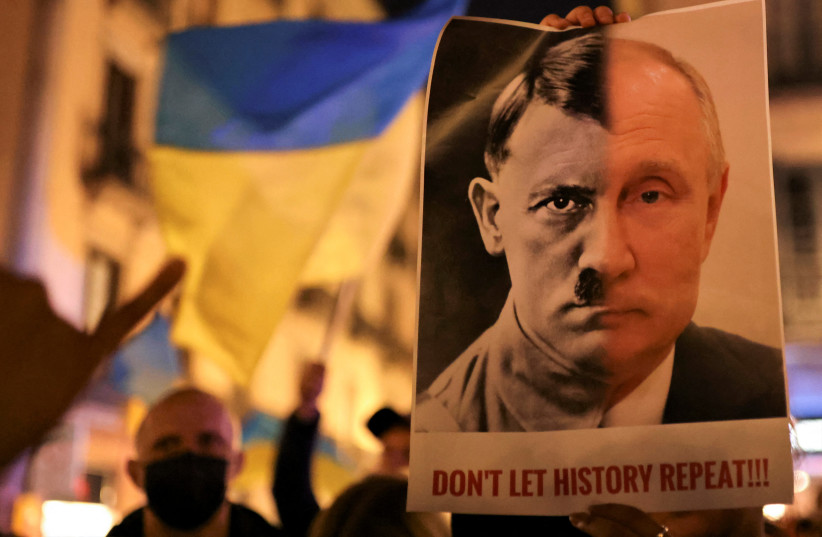Vyacheslav Volodin, the Speaker of Russia’s State Duma (the Federal Assembly's lower house) and known ally of Russian President Vladimir Putin, called for Ukrainian President Volodymyr Zelensky to face a trial for war crimes in a Telegram post on Monday.
Volodin, who also served as deputy prime minister from 2010 to 2012, said that Zelensky should be judged for what he calls war crimes, adding that he "should be brought before a tribunal." His message was broadcast to his over 650,000 subscribers.
"Everyone has seen evidence of Ukrainian Nazis shooting our soldiers lying down, without weapons. This is how the Nazis behave,” Volodin said in a statement consistent with Russia’s desire to portray Zelensky’s regime as neo-Nazis. “The Kyiv regime deserves the most severe punishment for its atrocities," he added.
Why does Russia call Ukraine Nazis?
Russia’s accusation that its enemies are “Nazis” or “fascists” has a long history going back to the 1920s. Communists mobilized against fascists in Europe in the 1920s and 30s. Later, when Nazi Germany invaded Russia, it was the turn of the Soviets to showcase their fight against Nazism and fascism.

"Countries cooperating with the Kyiv regime must understand that they support the Nazi state, sadists whose hands are up to the elbows in blood," Volodin also said.
Zelensky is Jewish and a descendant of Holocaust survivors.
Since Russia’s invasion of the Crimean Peninsula began in 2014, one of the leading Ukrainian forces was the Azov Special Operations Unit, or Azov Battalion. The battalion has been a bastion of neo-Nazis and extreme right-wing figures. As an independent militia, Azov originally sported the neo-Nazi Wolfsangel symbol which resembles a black swastika on a yellow background.
Who is Vyacheslav Volodin?
Vyacheslav Volodin, 58, was nominated by Putin as the new speaker of the State Duma. He oversaw the 2016 parliamentary election in which the leading party supported the Russian president.
Considered one of Russia's most influential officials, Volodin has had a large influence on Russian elections. He was also widely seen as a driving force behind a string of draconian laws in response to massive anti-Putin protests in 2011-2012.
Seth J. Frantzman contributed to this report.
